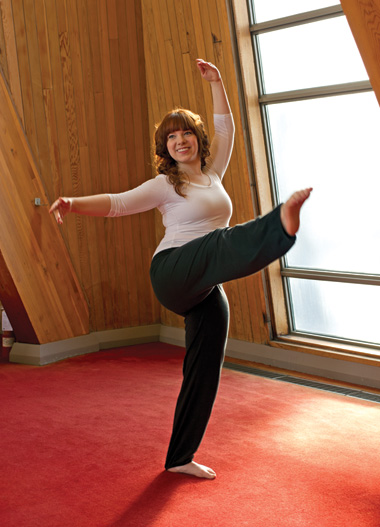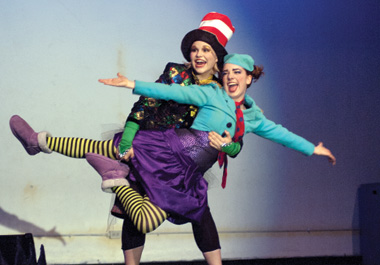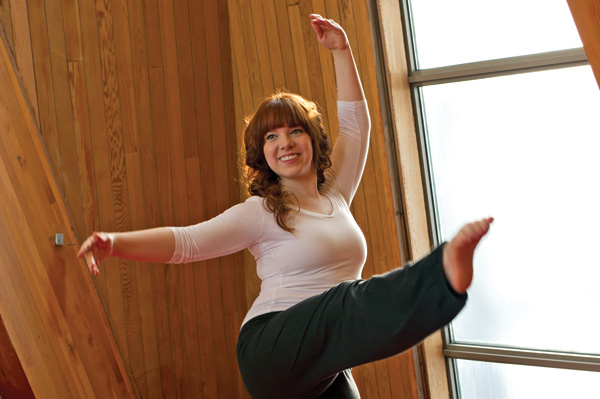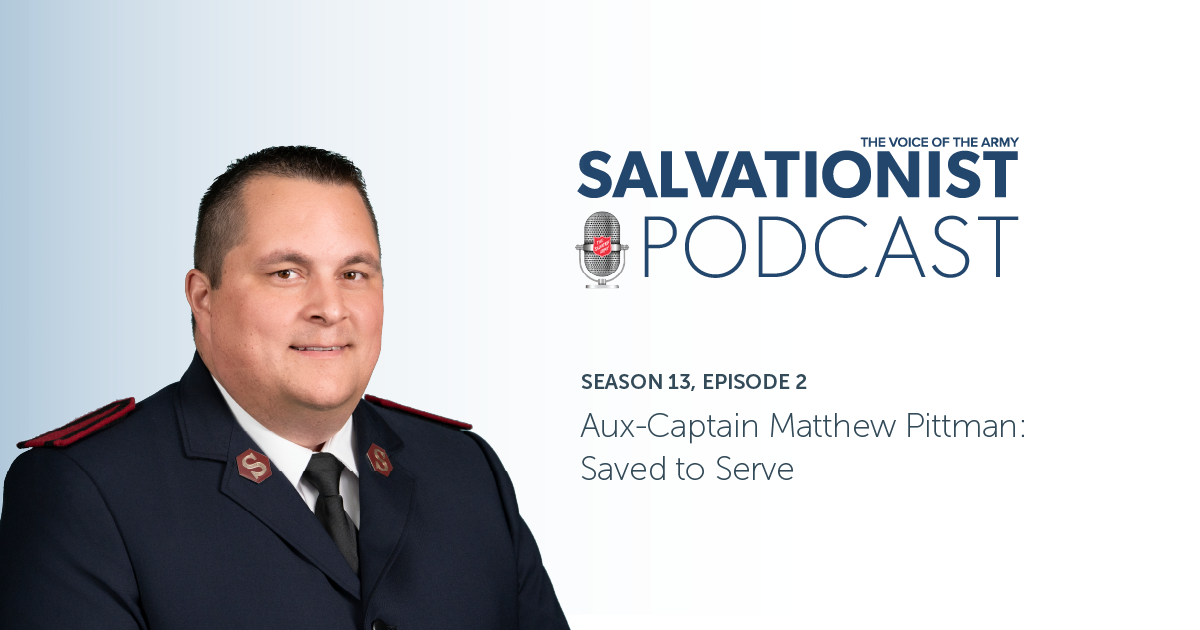 All of a sudden I realized God could be right here,” shares Kathryn Ballantine. She is describing the moment when she and husband, Kyle Higgins, dramatized Psalm 23 for the congregation at Yorkminster Citadel in Toronto.
All of a sudden I realized God could be right here,” shares Kathryn Ballantine. She is describing the moment when she and husband, Kyle Higgins, dramatized Psalm 23 for the congregation at Yorkminster Citadel in Toronto.
“In The Message paraphrase, it says, 'I'm not afraid when you walk at my side.' I realized that God is not just out in the world, or in the heavens, or somewhere out there. God's omnipresence became very real to me.”
As a dramatist, Ballantine sees beyond the biblical text. Putting physical movement to passages of Scripture was something the 22-year-old was used to doing, but her interest increased after American Salvationist Carol Jaudes ran a Scripture Alive! seminar in Toronto last year. For Ballantine, the co-ordination of dance and Scripture is “the most heightened of all the theatrical presentation styles.”
“In the theatre, they say that when there is nothing left to say, you sing. And when there is nothing left to sing and you feel you have to use your whole body, you dance,” she says.
“Putting a physical movement to something changes the way you see it. A simple look or gesture can make the human body vulnerable and the audience can put themselves in your position a lot easier than when reading words.”
After their presentations at Yorkminster, newlyweds Kathryn and Kyle received many positive comments.
“People told us the meaning of the words came alive for them,” she recalls. “Dancing is the same as if you were singing to a congregation; you are bringing the text to life so that someone else can get something new from it. If putting words to movement makes people listen more carefully to Scripture, then Kyle and I have done our job.”
Dance is a powerful communicator, transcending language. “We have a lot of Spanish-speaking people at our corps,” notes Ballantine. “When Kyle reads Scripture in English and I give movement to it, they understand what we are doing.”
Finding the Distinction
Ballantine's resumé features roles in musical theatre, such as Anne of Green Gables and The Boys in the Photograph, an appearance in the Disney film, Camp Rock, clowning acts at Christmas with The Salvation Army and a solo album titled The Songs My Father Taught Me. She also teaches ballet, musical theatre, and lyrical, jazz and contemporary dance, and recently established a company with her husband called The Role Players.

“I love the adrenaline that comes from being in front of people, on the same wavelength as them as they wait for you to give them something,” she shares.
But Ballantine has learned to distinguish a theatrical style of performance from creative worship. “I used to do a lot more dancing as worship—unprepared, spontaneous movement—but I realized that it was too easy. It felt more like a performance than a prayer or act of worship,” she confesses.
“It was easy for me to jump around but it wasn't easy for me to simply listen. So I took a step toward introverted worship. Now when I sing or dance in a worship setting, it's prepared. It is hard work to keep it worshipful and pure. As someone who is trained in the arts, you have to draw a clear line between what is performance and what is a spiritual act.”
Ballantine is also a talented vocalist and sings with the Yorkminster Songsters. “I cry every week in songster rehearsal. There is something so powerful about giving words a melody.
“I sing a lot of my dad's songs,” Ballantine continues, referring to Major Len Ballantine, corps officer, Yorkminster Citadel, who is an accomplished musician and composer. “A lot of his pieces come from a personal point of view with lyrics such as 'I will wait for you' or 'I will sing.' In rehearsal, it becomes an expression of what I'm feeling.”
As someone who was raised in a Christian family with officer parents, Ballantine's relationship with God emerged naturally, just like her urge to perform. Both desires were always there. Nonetheless, Ballantine recalls turbulent teen years when her faith was tested as the only Christian at a performing arts school.
“When I started to question my faith, it felt horrible,” Ballantine shares. “But once I started asking those questions, the answers all pointed back to where I started. So I very quickly knew what I wanted in life.”
Now she offers encouragement to other creative people who want to worship God through the arts.
“I tell them to start with an area of struggle. Find a passage of Scripture that doesn't come easily to you. That is obviously a tender spot where you are going to be most vulnerable. Then, take that Scripture and create some movement around it, or write a song or a play. Let it become your testimony. If you start with what is true for you then it will speak to an audience.
“Surrender the performance to God. That's when you allow his Spirit to take centre stage.”










Leave a Comment